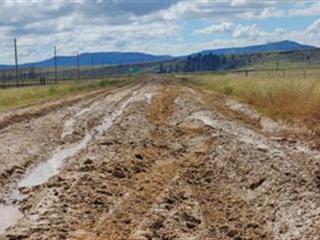During the fourth GENERAL ASSEMBLY of the Forum for Agricultural Research in Africa (Fara), minister of agriculture and land affairs Lulu Xingwana read President Thabo Mbeki’s speech as he was detained in parliament delivering the Presidential Budget Speech. Xingwana welcomed the general assembly back to Southern Africa on behalf of Mbeki and congratulated all who comprise Fara. According to Mbeki, so often institutions are established with profound visions of effective action only to find that they have created yet more talking shops. But he said this has not been the case with Fara since its inception in Maputo in July 2002.
“The vital question before the assembly is why Africa needs Fara. The simple answer lies in Fara’s capacity to help the continent address the promotion of productivity and competitiveness of African agriculture in a global economy. It is a severe challenge that must be addressed,” said Mbeki. He said the scope and scale of the challenges Fara was created to help address include global markets, land, labour, water and capital. According to the Food Outlook Report by the Food and Agriculture Organisation (FAO), poor harvests in major grain producing countries have led to a dramatic rise in prices for cereal grains such as wheat and maize. The FAO further predicts that with grains being used for industrial purposes such as ethanol, prices may continue to remain high. “The impact of this, as always, will affect developing countries the most,” said Mbeki.
The declining quality of agricultural lands is one of the most significant contributors to poverty and hunger in Africa. Various forms of degradation affect about 65% of all agricultural land in Africa. South Africa alone loses about 400 million tons of soil each year from erosion. “We have been warned that if this rate of loss continues crop yields will be halved within the next 40 years.”
Labour, an essential factor in agricultural production, is threatened by the Aids pandemic. Crop production has been found to fall by over 50% after the death of the breadwinner. The result is that many families are reduced to subsistence farming, making it difficult to contend with the commercial sector. Our fresh water supplies are increasingly becoming an unreliable commodity. Climate change is increasing the frequency and severity of weather phenomena such as droughts and floods, which are disastrous to agriculture. Mbeki called on the assembly to work towards a sustainable conservation solution.
As far as capital is concerned, Mbeki conceded that poor people have little money to invest in improving their productivity. “There is no doubt that Africa has sufficient untapped agricultural potential. Of Africa’s 632 million hectares of arable land only 179 million hectares are currently in use. This shortage arises from the uneven distribution of populations and cultivatable land between countries,” he said. On the positive side Mbeki remarked that the overall framework for effective agricultural innovation on a continental scale is now in place. – Cornelia du Plooy









